Mozambique: President appoints Frelimo stalwarts to Council of State, Defence Council
Mozambique: Police say they used ‘legitimate means’ to disperse protestors

File photo: Lusa
The Mozambican police have stated that they used legitimate means to disperse the masses during the post-election demonstrations and that real bullets were only used in “proportional” and “involuntary” circumstances during the protests.
“In the dispersal or mass control component, legitimate means of dispersal are used. Real bullets (…) are used in involuntary circumstances and sometimes even in circumstances of proportionality,” said the spokesman for the general command of the Police of the Republic of Mozambique (PRM), Leonel Muchina, quoted by the media on Thursday.
Since October, Mozambique has experienced severe social unrest, with demonstrations and stoppages called by former candidate Venâncio Mondlane, who rejects the election results of 9 October, which gave victory to Daniel Chapo.
According to the PRM spokesman, some police vehicles were set on fire during the demonstrations.
“We have seen in many scenarios objects and police vehicles being set on fire with incendiary devices, known as Molotov cocktails. These are weapons and they need to be repelled proportionally,” he said.
In situations where “proportional” means were not used, Muchina explained that the corporation used “involuntary” means to restore public order.
“For all of these issues, there was a need to set up inquiry teams that went deeper into the circumstances in which these incidents occurred, so as to effectively find ways toe improve the actions of our agents,” Muchina said.
On Tuesday, Amnesty International accused the Mozambican security forces of using violence against peaceful demonstrators and by-standers in the aftermath of last year’s elections, considering it a “shameful overreaction”.
In the report “Protest Under Attack: Human Rights Violations During Mozambique’s Post-2024 Election Crackdown”, Amnesty International (AI) shows how police forces fired “lethal weapons, tear gas and kinetic impact projectiles (commonly known as “rubber bullets”) at protesters and bystanders, including children”.
Regarding the Amnesty report, the spokesman for the PRM general command reiterated that the incidents reported by AI involving the corporation occurred in unintended circumstances. “The police have no interest in attacking their citizens, and we have to ensure that all Mozambican citizens are protected,” Muchina added.
According to Amnesty International, the authorities also “conducted mass arbitrary arrests and targeted journalists, including by intimidating them and confiscating their equipment, while internet access was restricted at key moments”.
READ: Amnesty urges probe of ‘reckless’ Mozambique crackdown on protests
Since 21 October, the start of these protests, at least 388 people have died, including around two dozen minors, according to Plataforma Decide, a Mozambican non-governmental organisation that monitors electoral processes.
However, Mozambique’s government has confirmed at least 80 deaths, as well as the destruction of 1,677 commercial establishments, 177 schools and 23 health centres during the demonstrations.
On 23 March, opposition leader Venâncio Mondlane and Daniel Chapo, who had already been sworn in as president, met for the first time, and they committed to stopping the violence in the country.


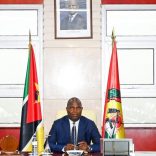
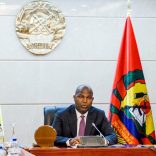
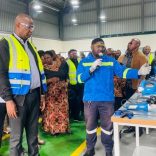
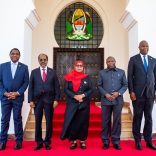

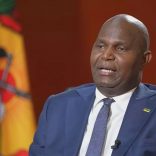




Leave a Reply
Be the First to Comment!
You must be logged in to post a comment.
You must be logged in to post a comment.